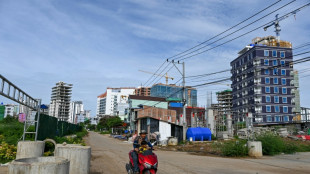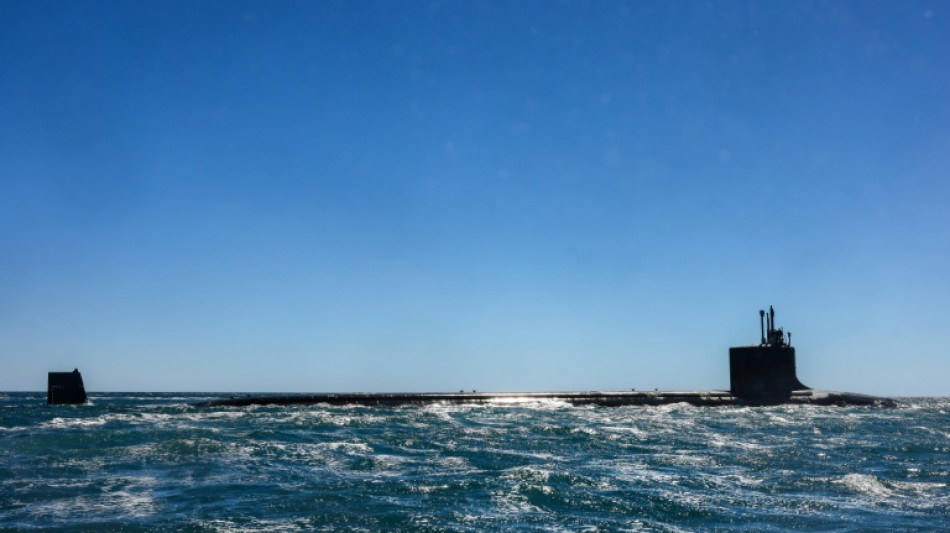
-
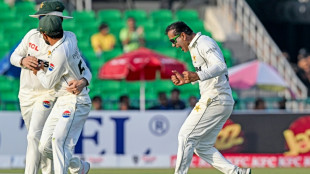 Noman stars as Pakistan win first South Africa Test by 93 runs
Noman stars as Pakistan win first South Africa Test by 93 runs
-
Liverpool owners vow 'work isn't done' on 15th anniversary of takeover

-
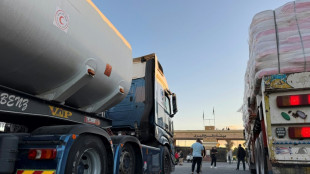 Israel expected to open key aid crossing into Gaza
Israel expected to open key aid crossing into Gaza
-
Tested by Russia, NATO looks to boost Kyiv and its own defences
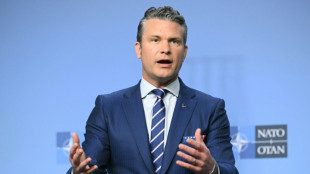
-
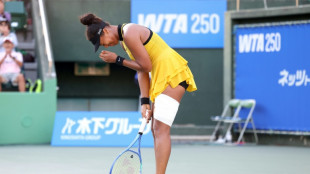 Tearful Osaka battles injury to reach Japan quarter-finals
Tearful Osaka battles injury to reach Japan quarter-finals
-
Noman puts Pakistan on brink of first South Africa Test win

-
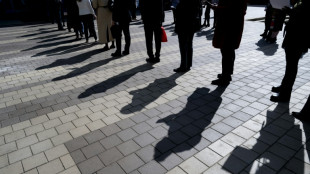 Markets rally, dollar weakens as Fed cut hopes trump trade war fears
Markets rally, dollar weakens as Fed cut hopes trump trade war fears
-
Kenyan opposition leader Raila Odinga dies in India
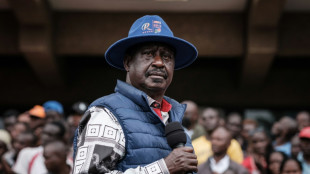
-
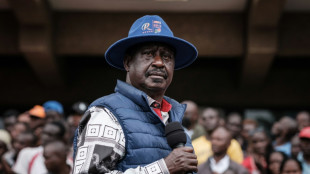 Raila Odinga: Kenya's perennial opposition leader
Raila Odinga: Kenya's perennial opposition leader
-
Pep talks with Djokovic as Sabalenka vows to improve 'in everything'

-
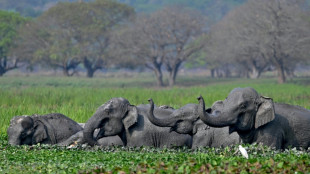 Jumbo drop in estimates of India elephant population
Jumbo drop in estimates of India elephant population
-
Award-winning Nigerian agronomist dreams of a cassava 'revolution'

-
 Sahel juntas in online bid to disrupt Ivory Coast poll
Sahel juntas in online bid to disrupt Ivory Coast poll
-
Tested by Russia, NATO looks to strengthen its defences
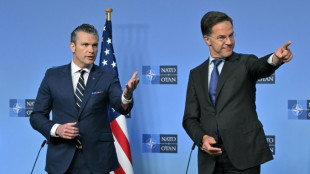
-
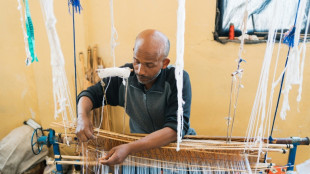 Ethiopia's weavers struggle to keep garment tradition alive
Ethiopia's weavers struggle to keep garment tradition alive
-
US Supreme Court to hear pivotal minority voting rights case

-
 Australia worries and England bravado light Ashes fuse
Australia worries and England bravado light Ashes fuse
-
Dutch tech giant ASML posts stable profits, warns on China sales
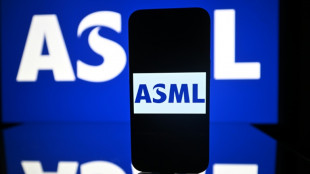
-
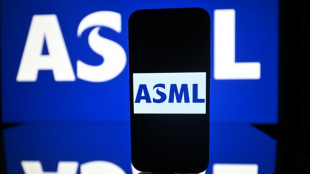 Dutch tech giant ASML: China sales to dip 'signficantly' in 2026
Dutch tech giant ASML: China sales to dip 'signficantly' in 2026
-
Ten-year ban for Australian rugby league players joining 'counterfeit' R360

-
 Jamaica beat Bermuda 4-0 to top World Cup group as Curacao held
Jamaica beat Bermuda 4-0 to top World Cup group as Curacao held
-
Yamamoto pitches complete game playoff win for Dodgers

-
 England's flawless qualification sets up quest for World Cup glory
England's flawless qualification sets up quest for World Cup glory
-
China consumer spending falls as pressure on economy builds
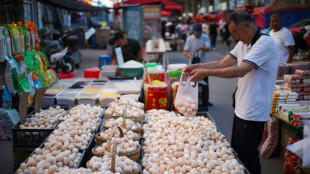
-
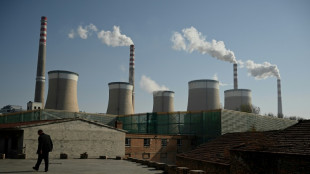 In China, climate litigation starts with the state
In China, climate litigation starts with the state
-
Yamamoto pitches Dodgers to MLB playoff win over Brewers

-
 Wright's two goals lift USA over Australia 2-1
Wright's two goals lift USA over Australia 2-1
-
Japan's first win over Brazil decades in the making, says coach
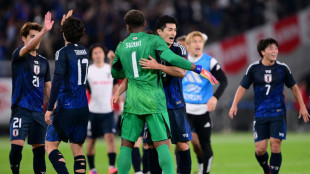
-
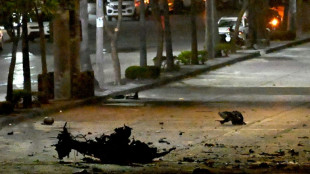 One dead, several injured in explosion at busy Ecuador shopping center
One dead, several injured in explosion at busy Ecuador shopping center
-
Asian markets rally as Fed cut hopes trump trade war fears
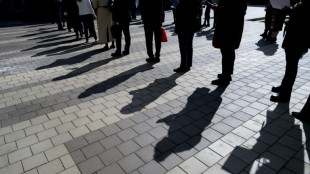
-
 Mac Allister and Martinez braces power Argentina over Puerto Rico
Mac Allister and Martinez braces power Argentina over Puerto Rico
-
Son tells South Korea to ignore reputations at World Cup
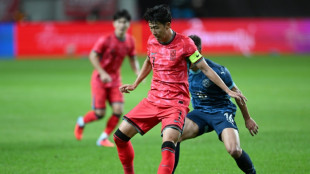
-
 Jamaicans grab group lead with World Cup qualifying win
Jamaicans grab group lead with World Cup qualifying win
-
Australia must deploy 'unconventional' means to deter China, Russia: think tank
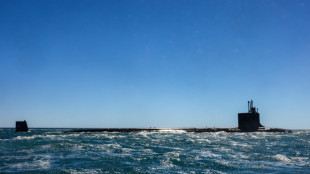
-
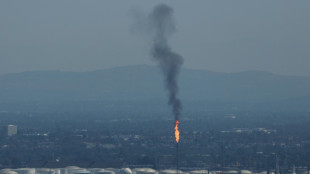 US Republicans seek to shield oil giants as climate lawsuits advance
US Republicans seek to shield oil giants as climate lawsuits advance
-
Major media outlets reject Pentagon reporting rules
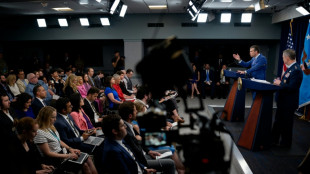
-
 Gattuso not underestimating anyone ahead of World Cup qualifying play-offs
Gattuso not underestimating anyone ahead of World Cup qualifying play-offs
-
England clinch 2026 World Cup qualification, Portugal forced to wait

-
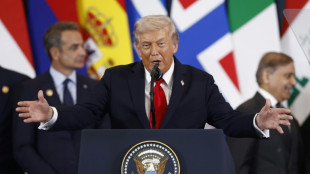 Brash Trump approach brings Gaza deal but broader peace in question
Brash Trump approach brings Gaza deal but broader peace in question
-
South Africa, Ivory Coast, Senegal qualify for 2026 World Cup
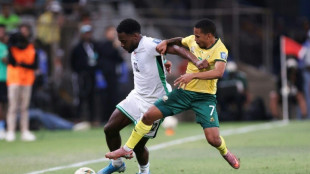
-
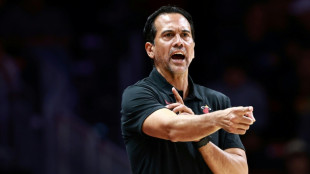 USA Basketball names Heat's Spoelstra as coach through 2028
USA Basketball names Heat's Spoelstra as coach through 2028
-
Mixed day for global stocks amid trade angst, Powell comments
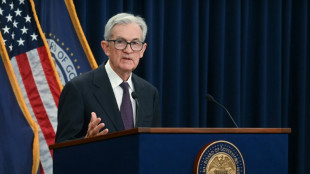
-
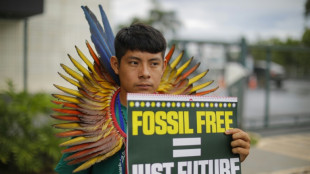 Brazil, other nations agree to quadruple sustainable fuels
Brazil, other nations agree to quadruple sustainable fuels
-
Hungary deny Portugal, Ronaldo early World Cup berth
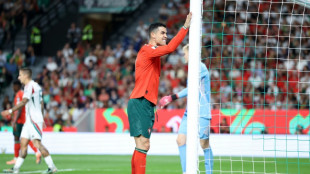
-
 Qatar and Saudi Arabia qualify for 2026 World Cup
Qatar and Saudi Arabia qualify for 2026 World Cup
-
England qualify for World Cup with rout of Latvia

-
 Merino double helps Spain thrash Bulgaria
Merino double helps Spain thrash Bulgaria
-
Trump threatens to end cooking oil purchases from China
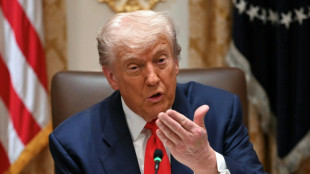
-
 Strong dealmaking boosts profits at US banking giants
Strong dealmaking boosts profits at US banking giants
-
French telecoms join forces to break up embattled SFR


Australia must deploy 'unconventional' means to deter China, Russia: think tank
Australia must learn from past guerrilla insurgencies and adopt an "unconventional deterrence" policy in facing down threats from China, Russia and elsewhere, one of the country's leading think tanks said Wednesday.
Australia, under the tripartite AUKUS pact with the United States and the United Kingdom, will acquire at least three Virginia class submarines from the United States within 15 years, with an eye to eventually build its own.
Until then Canberra faces a major gap in its defences, warned the report by the non-partisan Australian Strategic Policy Institute (ASPI), which receives funding from Canberra's defence ministry as well as the US State Department.
"Australia's traditional reliance upon 'great and powerful friends' and extended nuclear deterrence now seems no longer assured," the authors wrote.
"Australia has options to fill today's deterrence gap: we just need to look beyond conventional paradigms," they said.
ASPI, acknowledging Australia's "inferiority" against adversaries like China, argued that past guerrilla wars like the Chechen insurgency against Russia in the 1990s showed that smaller actors could inflict heavy damage on much larger foes.
"History demonstrates that innovative concepts and asymmetric capabilities can achieve deterrent effects ahead of and during conflict," the authors wrote.
"Australian concepts of deterrence don't address the nature of competition as currently practised by China and other autocratic regimes such as Russia, North Korea and Iran," they warned.
ASPI pointed to Beijing's growing use of so-called "grey-zone" tactics -- cyberwarfare, coercion and subversion that fall short of acts of war -- as evidence that Australia needed a more dynamic and reactive policy.
It also argued Canberra could learn from former Singaporean leader Lee Kuan Yew's description of the city state as a "poisonous shrimp" -- as well as the "porcupine" strategies of Switzerland and the Baltic states.
ASPI called for the recreation of a National Security Adviser with sweeping powers and oversight over Canberra's intelligence agencies, as well as reforms of spying and defence laws to facilitate the new policy.
Australia is engaging in a rapid military build-up in a push to strengthen its defences against China, also its largest trading partner.
Canberra plans to gradually increase its defence spending to 2.4 percent of gross domestic product -- well short of US demands for 3.5 percent.
The AUKUS submarine programme alone could cost the country up to $235 billion over the next 30 years, according to Australian government forecasts, a price tag that has stoked criticism.
Z.Ramadan--SF-PST

